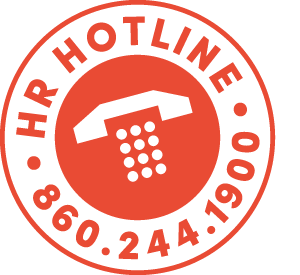HR Hotline: Are We Required to Pay Our Employees If We Have a Bad-Weather Closing?

It’s that time of year again. The hurricane train has left the station, and New England may be one of its stops. And winter weather is not far behind.
If inclement weather or power interruptions force you to close for all or part of a workday, hourly and salaried nonexempt employees, i.e., those eligible for overtime pay, need only be paid for time actually worked.

Where exempt employees (those not entitled to overtime) are absent from work because the business does not open at all for at least a full day but less than a full week, their regular weekly salary must still be paid in full.
However, under Connecticut law the portion of salary attributable to the weather-related closing day or days cannot be charged against the employee’s accrued paid time off benefits.
If the employee has no accrued PTO, full salary must still be paid, and the weather-closing day’s pay can either be treated as regular wages and simply paid, or it can be recorded as an advance of PTO benefits, and charged against future PTO accruals
In cases where the company remains open, and the employee chooses not to report for work for a full day or more, it may be considered a personal day off—unpaid—or the employee may draw from accrued PTO time.
State and federal law prohibits salary reductions for partial day absences.
A word of caution: An exempt employee who chooses to remain at home on a day of inclement weather may not really be absent if some work tasks are performed from home.
In such a case, that employee’s weekly salary should be paid in full as regular wages, and only charged in part against accrued PTO to the extent you are able to quantify how much work was performed, and how much time was taken off.
HR problems? Email or call Mark Soycher at the HR Hotline (860.244.1900) | @HRHotline
RELATED
EXPLORE BY CATEGORY
Stay Connected with CBIA News Digests
The latest news and information delivered directly to your inbox.


